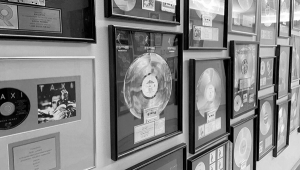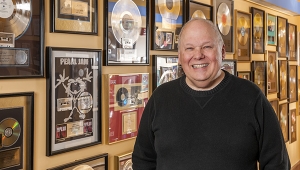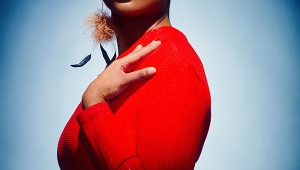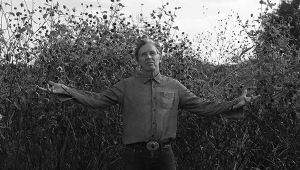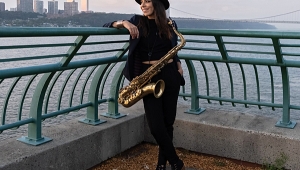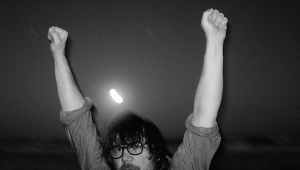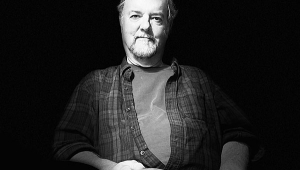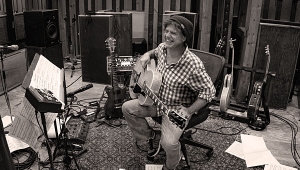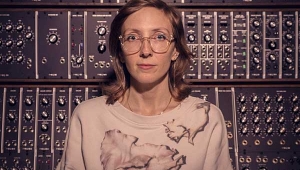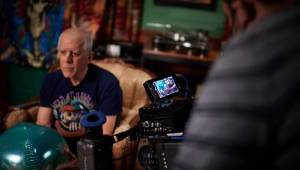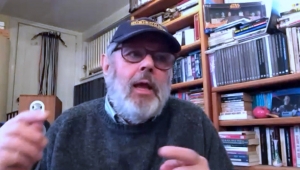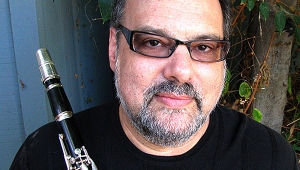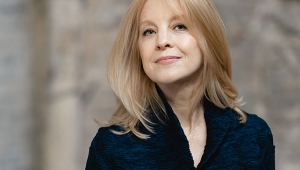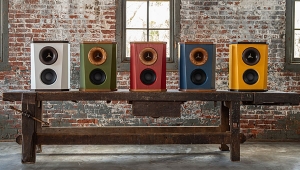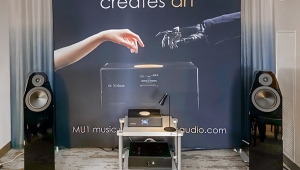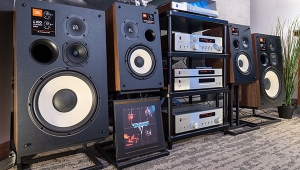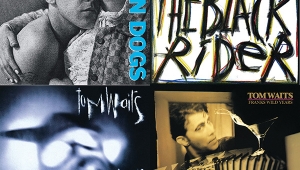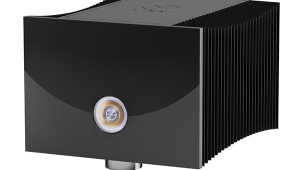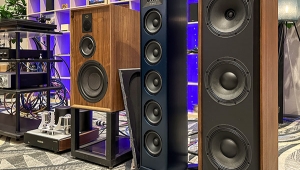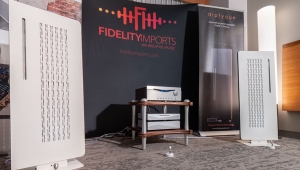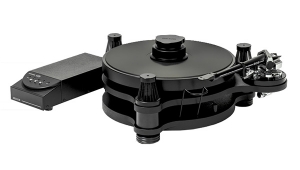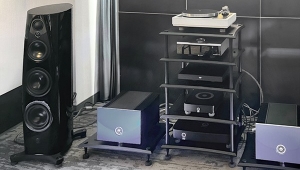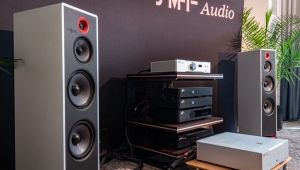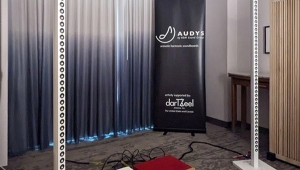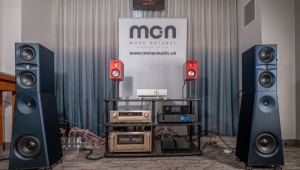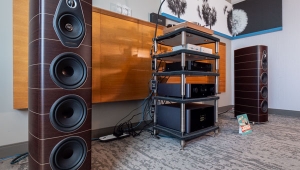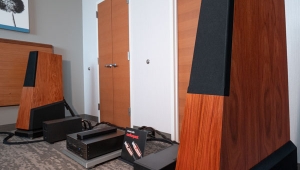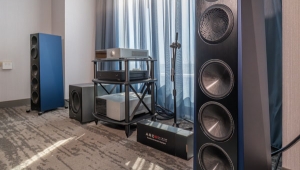| Columns Retired Columns & Blogs |
Samara Joy Page 2

Photo by Meredith Truax
Micallef: What do you like about those vocalists?
Joy: A while back people would ask me "Why are you singing jazz when you could be doing so many other things?" Well, if you listen to the singers of this music, who established the sound, each of them was singing jazz, but they had their own style that they contributed to the music. So I think of it not as like a box; it's like an open door. With Betty Carter, I really love the liberties she took when it came to singing the melody; she redefined what it means to interpret and story-tell. When you listen to Ella or Carmen or Sarah—well, Ella and Carmen, they deviate from the melody, but you can hear the composer's foundation being laid.
But with Betty Carter, I love her individuality and the fact that she was one of the main singers where I felt like, wow, she could have written this song, or the way that she took songs and rearranged them, she had such control and power when it came to her band and when it came to leading. I admire so many things about her. I was on the jazz cruise with [drummers] Greg Hutchinson and Kenny and Lewis Nash. They each had stories to tell about working with Betty Carter.
Micallef: Tell us about your family musical history.
Joy: My grandparents had a choir called The Savettes of Philadelphia. You can hear their records from the 1960s and '70s. My grandparents, Ruth Augusta McLendon (Byrd) and Elder Goldwire McLendon, were the lead singers. Their albums included The Sensational Savettes, The Savettes Choral Group's Nearer My God to Thee, I'll Take Jesus for Mine, and None But the Righteous.
My dad grew up around gospel. He sang and played bass in church. His aunts, his siblings, my aunts and uncles, we all sing. We're a whole singing family. Though there are no jazz singers in our family, I did find out that we might be related to [jazz and R&B vocalist] Arthur Prysock. It is probably even more of a surprise to them that I'm doing this.
Micallef: Why do you prefer jazz?
Joy: There's a lane for everybody. With jazz, I feel a lot freer. I feel a lot like I don't have to fit into an R&B aesthetic or a gospel aesthetic or anything like that. All of it's great, but I feel like I can still be influenced by the music without going down this one expected, mainstream path.
Micallef: Sounds like you were born for this; you're an incredible jazz singer.
Joy: Thank you. I didn't listen to jazz growing up really much at all. I'm more grateful for the fact that I didn't, because when I got to college, I could hit the ground running. I needed to learn and understand what this music sounds like because I had no preconceived notions about it.
Micallef: Did you have to learn how to swing?
Joy: Yeah, I definitely needed to learn how to. It was hard because I would go to jam sessions or at school in repertoire class or combo and try to sing based off of what little knowledge I had of what jazz sounded like at the time. I definitely followed in the tradition of those who created the music in the first place. I just listened and tried to absorb it and understand the feel as much as possible, just kind of developing it. Trying things, experimenting with the way that I sang and playing with different people. It's not something you're born with, I believe.
Micallef: Do you play piano or other instruments?
Joy: Yeah, I play the piano for transcription purposes, and when I want to learn a song and how a melody relates to the changes. But not professionally. I played electric bass for a minute because of my dad. I went to SUNY Purchase. My parents were very supportive. My mom is the businesswoman in the house, so she said, especially while I was in school, "Get a job and make sure you have some money in your pocket. Make sure you're saving up." But they were always very supportive of my pursuing music.
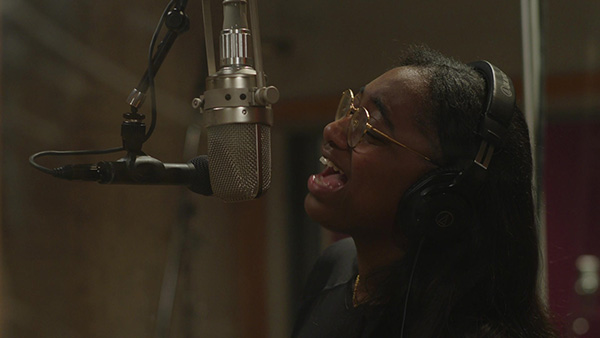
Micallef: Which of the old-school singers had the biggest impact on you?
Joy: I think Sarah Vaughan and Ella. What a place to start. When I started, I was listening to Ella for how to sing the melody and listening to Sarah for how to switch it up and make it different and make it unique. They're crucial to my understanding. Not just so I could copy or imitate them, but just understanding; it's that way with any genre. If you want to sing country, you want to sing R&B, you want to sing soul, you have to listen to those who established the sound, who changed it, who made it so that you can sing it. You have to listen to those who founded the sound. I'm not the first, and I definitely won't be the last.
Micallef: What does Billie Holiday mean to you?
Joy: Her feel was incredible. She talked about listening to Louis Armstrong and Bessie Smith. I take from her singing how to sing the blues, and how to put that feeling into every song. And not needing to showcase any sort of vocal acrobatics or anything like that in order to connect with people or in order to communicate the story of a song. She put raw emotion into everything she sang, on top of having one of the best feels when it comes to phrasing and singing standards. She was just beautiful.
Micallef: Who sings your favorite version of "Guess Who I Saw Today?"
Joy: The first time I heard it was on a Carmen McCrae record, After Glow. That's the first album that I really associated that song with. I didn't listen to Nancy Wilson's version, and I didn't sing the song until it was time to record it. But Carmen McRae's was my first introduction to the song, I'd never performed it live or recorded it. Nancy Wilson's is the accepted version. Anytime I say "Nancy Wilson" on a gig, people know exactly what song we're doing next.
Micallef: You've mastered the jazz canon at 23, and at 4.3 million likes, you're also a TikTok star. How did that happen?
Joy: I definitely have [pauses] an interesting relationship with social media. With social media, to stay relevant, you have to connect with your audience. I completely understand and I'm grateful for the platform. Whenever I post, if I'm going to present myself in this space, in this virtual space, where there's so many consumers and there's so much content, I want to present who I am without any sort of frills or anything like that. Whoever likes it, likes it. Whoever doesn't, it's fine.
Ms. Dianne Reeves was talking about it, too. She told me, "It's so amazing that you can directly connect with your audience, you can go on tour, you can do all of that, which is also amazing. You have something that I didn't have when I was coming up." She's incredible, but I didn't really think of it like that.
Micallef: You've proven there is an audience for jazz, regardless of age.
Joy: I was pleasantly surprised. Posting there and having people listen to my music enough to want to come to gigs and share it with others, and to want to buy vinyl again. If I don't have vinyl at the shows, everyone asks, "Where's your vinyl?" And it's interesting. People say, "You remind us of nostalgia. You give me a nostalgic feeling."
Micallef: Speaking of vinyl, what's your home system for listening to music?
Joy: Mostly Apple Music now. I have one JBL Bluetooth speaker. I don't have much gear. I wish I had Sonos. I do have a record player, but I haven't been able to get it to work. It's a Sony PS-LX2 Automatic Stereo Turntable. I bought it on eBay, but every time I try to plug in the speaker, I think I need a preamp, because it doesn't work. I don't get any sound.
Micallef: You should ask Kenny Washington, he's a serious audiophile. Or Google Schiit Mani. A great, inexpensive phono stage.
Joy: I found it! Thank you!
- Log in or register to post comments

